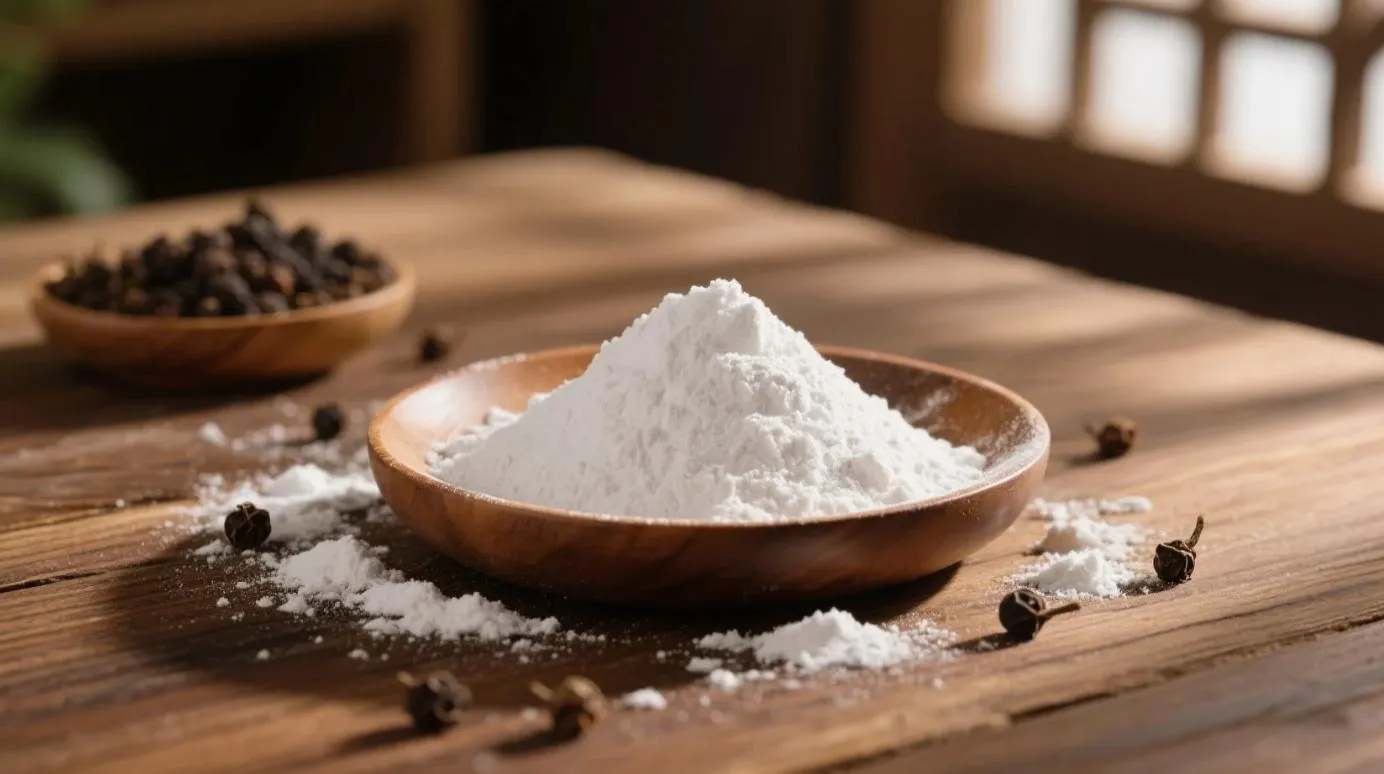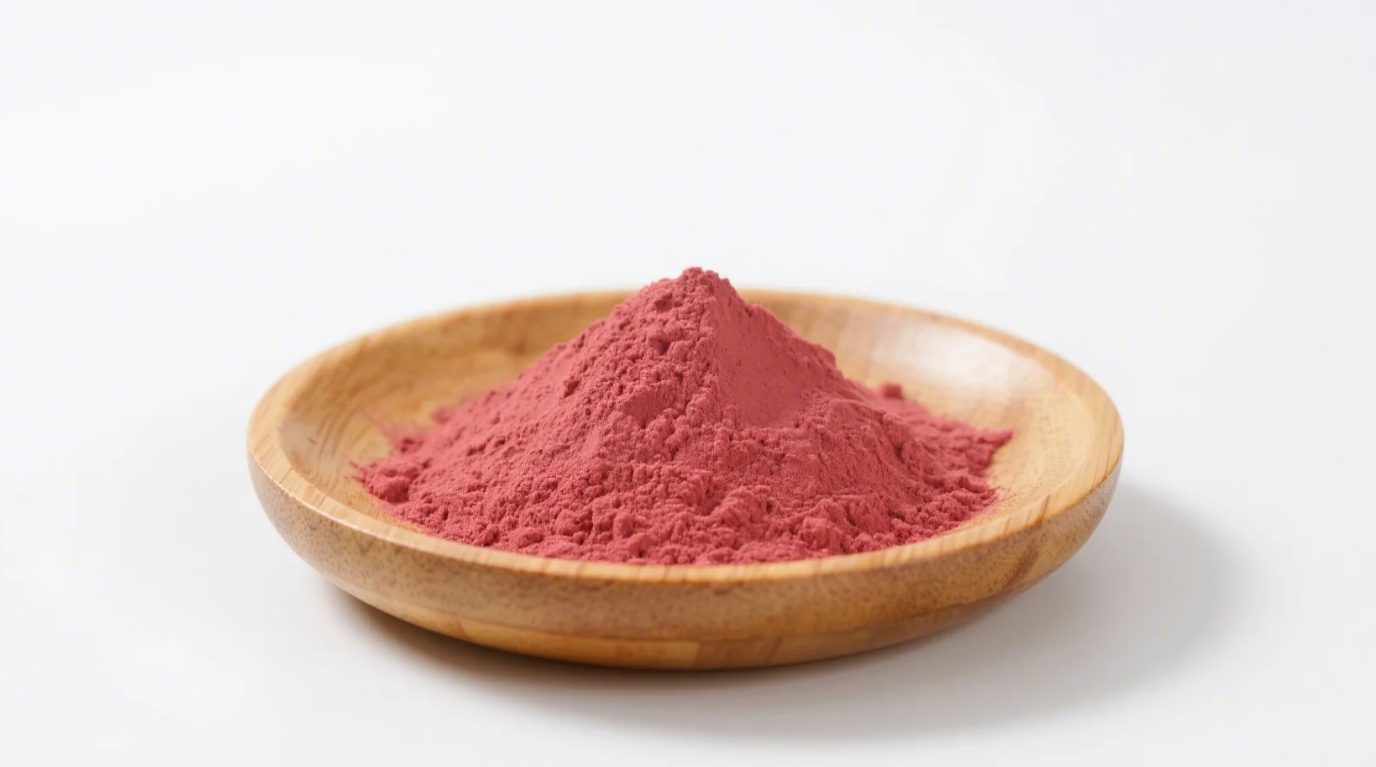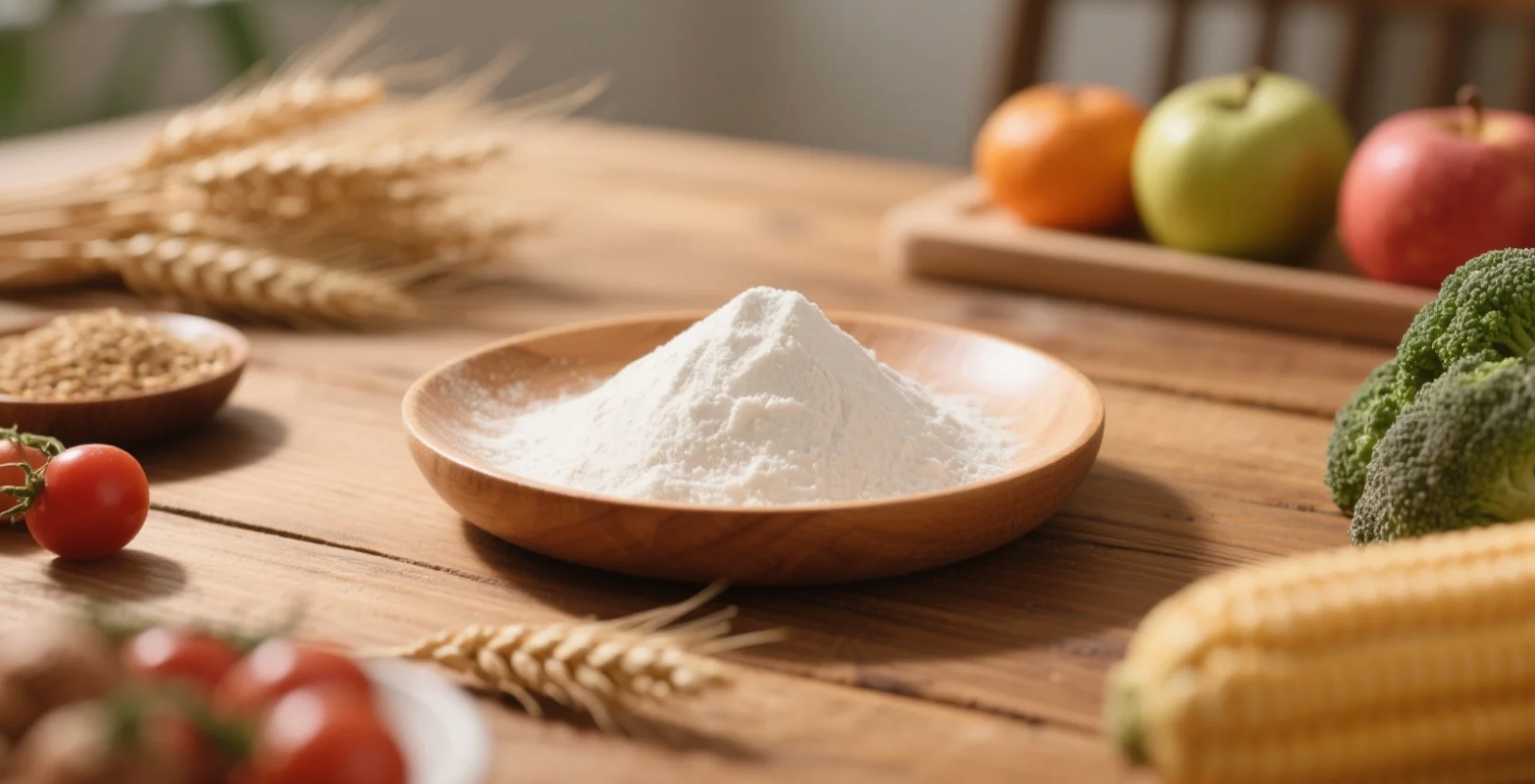Table of Contents
Pomegranates are celebrated for their antioxidant-rich arils and heart-healthy benefits. But for those watching their glucose levels, a critical question arises: Can organic pomegranate powder or organic pomegranate juice powder spike blood sugar? Let’s dive into the science and separate myth from fact.

The Short Answer
When consumed in moderation, organic pomegranate powder is unlikely to cause significant blood sugar spikes—thanks to its fiber content and low glycemic impact. However, results vary based on the product type and individual health. Here’s what you need to know.
Why Pomegranate Powder? Key Factors to Consider
- Fiber vs. Sugar Balance: Whole pomegranates contain natural sugars (fructose), but they’re bundled with fiber, which slows sugar absorption. Organic pomegranate powder (made from the whole fruit, including peel and seeds) retains this fiber, while organic pomegranate juice powder (made from pressed juice) has less fiber and higher sugar concentration.
- Glycemic Index (GI): Pomegranate has a low GI (around 18–35), meaning it raises blood sugar gradually. Powdered forms may have a slightly higher GI due to processing but remain a safer choice compared to refined sugars.
- Antioxidant Power: Pomegranates are rich in polyphenols, which studies suggest may improve insulin sensitivity and reduce inflammation linked to diabetes.
Organic Pomegranate Powder vs. Juice Powder: Blood Sugar Impact
| Factor | Organic Pomegranate Powder | Organic Pomegranate Juice Powder |
|---|---|---|
| Made From | Whole fruit (peel, seeds, arils) | Juice extracted from arils |
| Fiber Content | High (slows sugar absorption) | Low (fiber removed during juicing) |
| Sugar per Serving | ~3–5g (naturally occurring) | ~6–8g (more concentrated) |
| Best For | Smoothies, oatmeal, baking | Beverages, dressings, instant mixes |
Science-Backed Insights
- A 2020 study found that pomegranate extract improved blood sugar control in diabetic mice by enhancing insulin secretion.
- Human trials show that pomegranate polyphenols may reduce post-meal glucose spikes when paired with high-carb foods.
Who Should Be Cautious?
- Diabetics: Monitor portions—stick to 1–2 tsp of powder daily and pair with protein or healthy fats.
- Low-Carb Dieters: Opt for organic pomegranate powder over juice powder to maximize fiber and minimize net carbs.
Why Organic Matters
Non-organic pomegranate products may contain added sugars or preservatives that worsen blood sugar responses. Certified organic powders ensure:
✅ No added sugars or synthetic additives
✅ Higher polyphenol content (due to nutrient-dense farming)
✅ Purer, safer ingredients
How to Use Pomegranate Powder Without Spiking Glucose
- Mix into Yogurt or Oatmeal: Pair with Greek yogurt (high protein) or chia seeds (high fiber).
- Blend into Smoothies: Add spinach, avocado, or nut butter to balance carbs.
- Sprinkle on Salads: Enhance dressings with a pinch of powder for tangy flavor.
- Bake Smartly: Replace refined sugar in muffins with pomegranate powder (adjust sweetness sparingly).
The Verdict
For most people, organic pomegranate powder is a blood sugar-friendly superfood when used mindfully. Its fiber and antioxidants offset its natural sugars, making it a safer alternative to sugary snacks or juices. However, those with diabetes should consult a healthcare provider and prioritize whole-fruit powders over juice-based options.
Ready to Harness Pomegranate’s Benefits?
Explore our organic pomegranate powder for balanced nutrition or organic pomegranate juice powder for vibrant flavor—both crafted to support your wellness journey without compromising your health goals.
Sprinkle, blend, or stir your way to better health—naturally!
Related Products
Organic Pomegranate Powder
Drying Method: Spray Drying, Air Drying, Freeze Drying Specification: 100% Organic Or…


